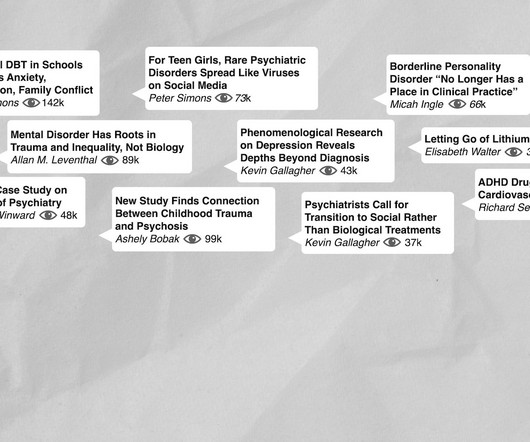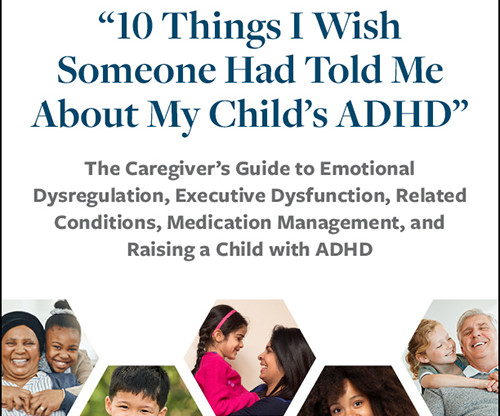The 6 Steps to Catalyze CBT and DBT With Young Patients
Psychiatric Times
JULY 21, 2025
SPECIAL REPORT: PSYCHOTHERAPY Cognitive behavior therapy (CBT) and dialectical behavior therapy (DBT) are widely adapted treatment paradigms grounded in empirical findings, meta-analyses, and case reports. Cognitive-behavior and dialectical behavior therapy in high-intensity settings.












Let's personalize your content